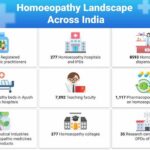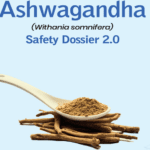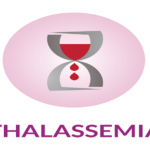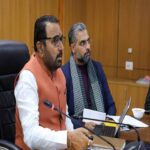healthysoch
New Delhi, July 11, 2019 :
Public Health and hospitals being a state subject, it is for the States/UTs to take necessary actions to boost healthcare services including distribution of life-saving and generic drugs in public health facilities. However, under the National Health Mission (NHM), financial and technical support is provided to the States/UTs for strengthening their healthcare delivery system including support for provision of essential drugs free of cost to those who access public health facilities. All the States/UTs have reported that they have notified free drug policy in their respective States/UTs.
Availability of the drugs are being monitored through Drug and Vaccine Distribution Management System (DVDMS). DVDMS is a web-based Supply Chain Management System that deals in purchase, supply, distribution and inventory management of various drugs, sutures, surgical and consumable items. It has an in-built provision of monitoring and checking the availability of medicine at all facilities at district and state level. DVDMS links various Regional/ District Drug Warehouses (DWH), District Hospitals (DH), their sub stores like Community Health Centres (CHC) and Primary Health Centres (PHC). Moreover, it has the functionality for distribution of drugs to patients, thus enabling tracking of consumption till last mile.
With an objective of making quality generic medicines available at affordable prices to all, PradhanMantriBhartiya Jan AushadhiPariyojana (PMBJP) was launched by the Department of Pharmaceuticals, Ministry of Chemicals & Fertilizers, Government of India. Under this scheme, dedicated outlets known as PradhanMantriBhartiyaJanaushadhiKendras (PMBJKs) are opened to sell generic medicines at affordable rates. . As on 21.06.2019, 5365 Pradhan PMBJKs are functional across the country.
The National List of Essential Medicines (NLEM) is one of the key instruments in healthcare delivery system of a country which inter aliaincludes accessible, affordable quality medicine at all the primary, secondary, tertiary levels of healthcare. The primary purpose of NLEM is to promote rational use of medicines considering the three important aspects i.e. cost, safety and efficacy. Furthermore it promotes prescription by generic names. The list serves as a reference document for correct dosage form and strength for prescribing.
Public health being a State subject, the number of essential medicines to be provided free of cost is decided by the States and varies from State to State. However, the Ministry has provided illustrative list of essential medicines that should be provided at Sub Centres, Primary Health Centres, Community Health Centres and District Hospitals. The list is available in public domain at nhsrcindia.org/sites/default/files/Facility wise essential Medicine 06 July-16.pdf. The list included:
| Name of the Facility | No. of Medicines |
| Sub-Centre | 57 |
| Primary Health Centre | 285 |
| Community Health Centre | 455 |
| District Hospital | 544 |
Under Free Drugs Service Initiative (FDSI) of National Health Mission, financial support is provided to States / UTs for provision of free essential medicines in public health facilities based on the requirements posted by them in their Programme Implementation Plans (PIPs) within their overall resource envelope.
The Minister of State (Health and Family Welfare), Shri Ashwini Kumar Choubey stated this in a written reply in the Rajya Sabha, here today.







